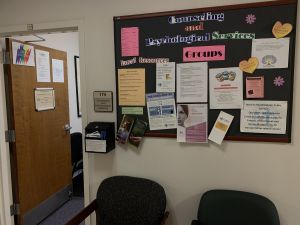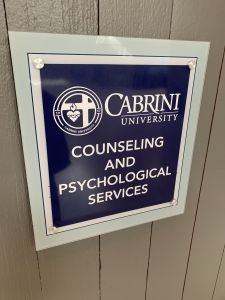
With mental health awareness and advocacy on the rise, talk of excused mental health days for students has entered the ongoing conversation.
Sometimes, being sick isn’t just a diagnosable cough, a cold or an upset stomach. Feeling sick can also stem from anxiety, depression or an array of other mood disorders.
Lawmakers are beginning to recognize that ailments can be internal and not just external. In the past year, schools in Oregon and Utah have introduced the option of excused absences for mental health circumstances.
In Utah, the law simply added to the list of reasons for excused absences/sick days. Excused absences in Utah can now be for both physical and mental ailments. The Utah State Legislature details a list of reasons accepted for excused absences.

At the top of the list, the first reason is illness. In fact, it says “illness, which may be either mental or physical.” This is a big step for mental health awareness because it is inclusive of the community.
Oregon now allows students to take five mental health days within a three month period. While this may seem excessive to some, lawmakers and students alike have vouched for the new initiatives success.
In an interview with Fox 12 News Oregon, former Oregon student Derek Evans remembered that high school “left him exhausted some days” and said that these excused mental health days can be “life changing” for some students.

Many of the symptoms of mental health ailments can present themselves with physical symptoms, hiding the real issue. For example, those who suffer from anxiety may also suffer from stomach pain, headaches, sweating and/or muscle tension.
Sometimes, it can be difficult to determine if someone is just sick or if you are dealing with a psychological condition, like a mood disorder.
According to an article in The New York Times, students often lie to their parents about being sick to stay home from school because of anxiety, depression, etc. Because of this, some parents feel they miss the opportunities to speak to their children about mental health.
If students do not feel comfortable about talking about their mental health issues, they will likely resort to saying “I don’t feel well,” to get them excused from class. Because unfortunately talking about mental health still seems to be a little taboo, laws like the ones introduced in Oregon and Utah have been very helpful.
According to the Anxiety and Depression Association of America, 50 percent of all lifetime cases of mental illness begin developing by the age of 14. Do we have the ability to change these numbers by talking about mental health at an earlier age?
Psychology major Angelika Selverian thinks so. “If we normalize mental health issues, then the stigma will decrease.”
Selverian believes that introducing mental health advocacy at an earlier age can help with general awareness. “When you’re not [feeling] good mentally, it affects your entire body and can literally make you physically sick.”
As a junior, Selverian recalls a time when she didn’t realize it was “okay” to take a mental health day. It wasn’t until she started seeing a therapist that she realized that sometimes, mental health days are needed. “I take days off when I don’t feel good mentally, and it would seriously be great if those days would be considered an excused absence.”

Cabrini University offers Counseling and Psychological Services. The office has individual counseling, group counseling and other health focused events and resources. There are even resources for staff and faculty.
Dr. Alissa Brown, Director of Counseling and Psychological Services, encourages anyone with mental health concerns to reach out to speak with one of their counselors.
Counseling and Psychological Services are available Monday-Friday from 9 a.m. to 4 p.m. by appointment only. However, walk-ins are accepted Monday-Friday from noon until 1 p.m. CAPS is located in Grace Hall, room 174.


